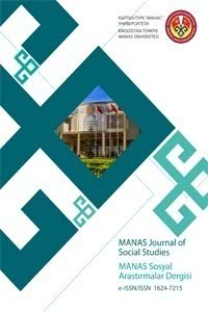THE EVALUATION OF THE SMALL STEPS IN EARLY EDUCATION PROGRAM
___
- BEVERLY; C.L. and THOMAS; S.B. (1999). Family assessment and collaboration building: Conjoined processes. International Journal of Disability, Development and Education, 46(2), 179-197
- DARICA, N., and ABIDOĞLU, Ü. (2000). Otızm and Otistic Children (Otizm and Otistik Çocuklar). İstanbul: Özgür Publications
- KELLY, J.F. and BARNARD, K.E. (1999). Parent Education within a relationship – Focused model. Topics in Early Childhood Special Education, 19 (3), 151-157
- LIBBY, K. (1994). Communication Skills in Children with Down Syndrome USA: Woodbine House.
- LYNCH, E W and ARQUELLES; L., (2000). Hispanic Family Iİnvolvement in Special Education. Unpublished doctoral dissertation. USA: The Claremont Graduate University.
- MOIRA, R. TREOLAR; R. (1996). Küçük Adımlar Gelişimsel Geriliği Olan Çocuklara Yönelik Erken Eğitim Programı (The Small Steps Early Education Program for the Children of Developmental Problems). İstanbul: Duran Ofset.
- MORGAN, D.L. (1998a). The focus group guide book. Thousand Oaks:Sage.
- MORGAN, D.L. (1998b). Planning focus groups. Thousand Oaks:Sage.
- POWERS, M. (1989). Children with Autism. A parent’s Guide. USA: Woodbine House.
- TURAN, A. (2000). Sevgi Dili Konuşan Çocuklar (Children who talk language with lovely). İstanbul:Sistam Publications.
- TRIEVETTE, C.M.; DUNST, C.J.; BOYD, K. and HAMBY, D.W. (1996). Family oriented Program Models, helping Practices and Parental Control Appraisals. Exceptional Children, 62 (3), 237-248
- ISSN: 1694-7215
- Yayın Aralığı: Yılda 4 Sayı
- Başlangıç: 2001
- Yayıncı: Kırgızistan Türkiye Manas Üniversitesi
Sayıdaki Diğer Makaleler
Nilüfer ÖZABACI, İnstructor Hatice ERGİN
GEÇİŞ EKONOMİLERİNDE EKONOMİK BÜYÜME VE DIŞ FİNANSMAN
EĞİTİM FAKÜLTESİ ÖĞRENCİLERİNİN ÖĞRETMENLİK MESLEĞİNE İLİŞKİN MOTİVASYON DÜZEYLERİ
M Bahaddin ACAT, Kürşat YENİLMEZ
KIRGIZ HALKININ AKRABALIKLA İLGİLİ TERİMLERİ
MANAS DESTANI KALBİMİN AĞRISIDIR Manas Destanı’nın Üç Ciltlik Yayınının Son Sözü
TÜRK SİNEMASINDA SUSKUN KADIN İMGESİ
